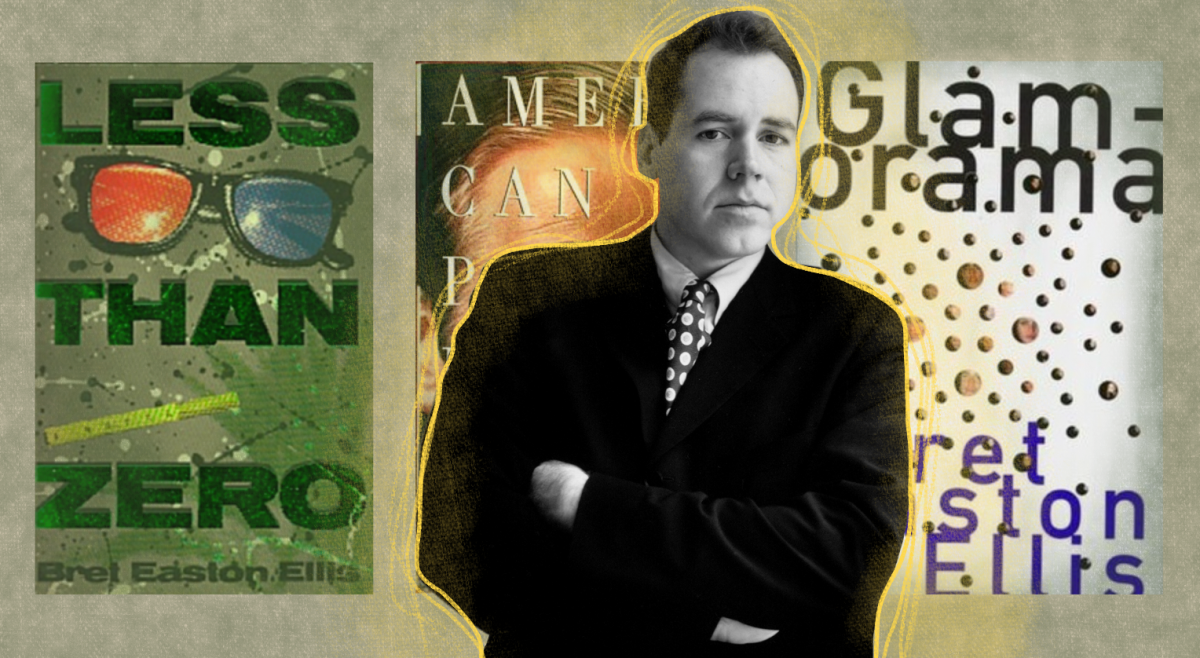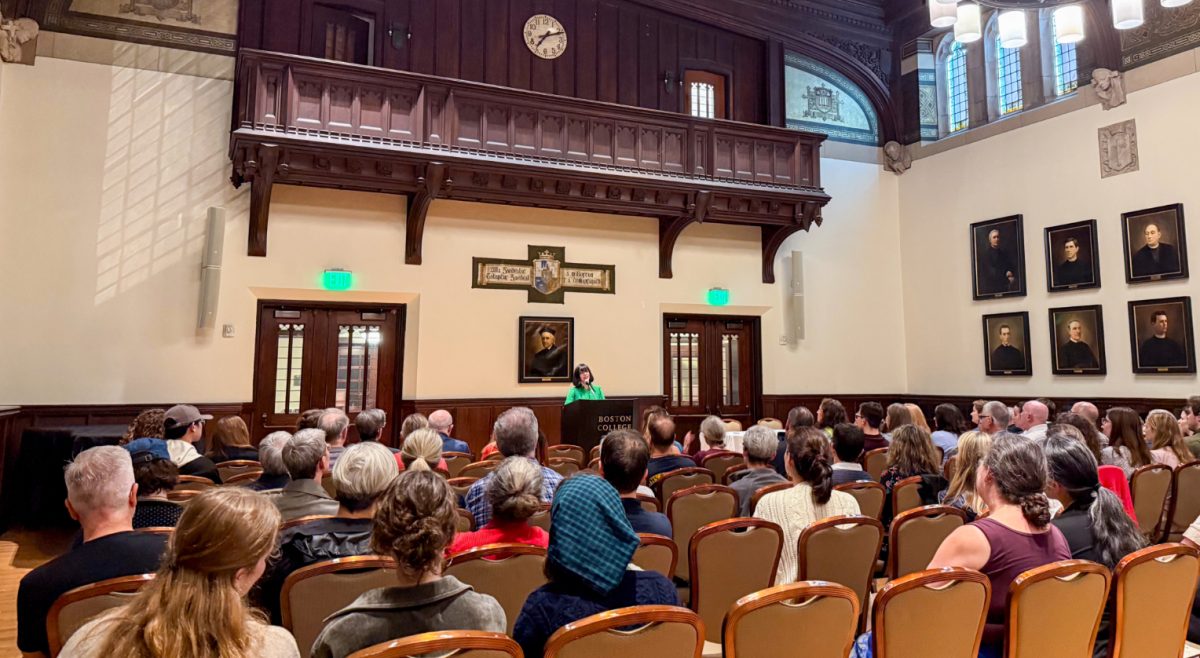BC Theatre’s performance of Sweat, directed by Patricia Riggin, managed to pack lessons about racism, loyalty, and what it means to conform to an ever-changing workforce into a two and a half-hour theatre production thi weekend. The play, written by Lynn Nottage, followed a group of friends and their children as they navigate their personal and work-related struggles during an economic depression.
Sweat was seamlessly adapted to the regulations of the pandemic. The cast was able to film from individual studios in Robsham Theater as well as remotely from their homes. With the help of green screens, the actors looked like they were sitting in the Irish Pub in Quincy, Mass. What’s more, the production aired live over Zoom to an audience comfortably watching from home. The production was performed completely virtually because of COVID-19, but the simple backgrounds and individual Zoom screens gave the actors a unique opportunity to let their talents shine. Due to the minimalistic qualities of the online production, inflection and line delivery were crucial to keeping the audience engaged—and each actor met the mark.
The production began with a parole meeting in 2008, first between Jason (Matthew Dolly, MCAS ’21) and his parole officer Evan (Alex Rougeau), then between Chris (Nate Victor, WCAS ’20) and Evan. The audience was immediately led to dislike Jason, not only due to the offensive tattoos on his face, but also because of the slurs he used toward the other characters.
Jason had just gotten into a fight after running into Chris after eight years. Instead of giving the audience context as to why the two are in this situation, the play flashed back to eight years prior, when factory workers Jessie (Katie Van Riper, MCAS ’21), Jason’s mom Tracey (Katie Meade, MCAS ’22) and Chris’ mom Cynthia (Debbie Aboaba, MCAS ’21) were discussing applying for a promotion at their factory, Olstead. The audience was transported to a bar in Reading, Pa.—a city much affected by the factory closings in the wake of the North American Free Trade Agreement (NAFTA)—for this conversation and the majority of the rest of the play.
Through their conversation with Stan the barman (Ryan Kitz, MCAS ’23) and his employee Oscar (Jairo Escareno, MCAS ’21), the audience learned of the potential changes in the workforce. There was a lot of talk later about Olstead firing its old workers in favor of immigrant workers, who would typically work the same jobs but with less pay. Also, Olstead had recently opened up a spot for a possible promotion for the floor workers, such as Tracey, Jessie, and Cynthia.
Tracey wanted things to stay as they are. She wanted to keep working on the floor day by day with her normal pay and benefits, and then to hang out at the bar at night. She was comfortable and had an “if it ain’t broke, don’t fix it” mentality. She did not even consider the possibilities that would come from applying for a job promotion.
Cynthia, on the other hand, wanted more. She noticed the issues that have come with working on the factory floor her whole life—and how much more control she would have had with higher wages and a position of power. But Jessie, because she was drunk, was unable to participate in this conversation with the rest.
Due to the cutbacks in the factories in Reading and the effects of NAFTA, the fates of all the factory workers were uncertain. Some turned to substance abuse to ease their anxiety about all of these changes while others attempted to tackle the unknown.
This anxiety, heightened by the racial tensions in the play, turned into anger for some. NAFTA was one of the reasons emotions were running high during the production. NAFTA is an agreement signed by President George H.W. Bush, Canadian Prime Minister Brian Mulroney, and Mexican President Carlos Salinas that aimed to build a better relationship between the three countries, with a special focus on Mexico. The workers blamed NAFTA for the high decline in jobs that was abundant in 2000, the same year the majority of Sweat’s plot took place.
Toward the end of the play, Oscar, an outsider, decided to take a job at Olstead when the old workers were on strike. The workers, such as Jason and Chris, were protesting the changes to their benefits and wages that were deemed to be caused by NAFTA. Although the wages were lower at Olstead, Oscar took the job because it was still higher than his wage at Stan’s bar. When Oscar and Jason crossed paths at the bar, a brawl ensued. This fight scene was included virtually with the help of a green screen, something that must have been difficult to perform remotely.
Throughout the production, audiences were led to wonder what it means to be loyal to one’s friends, and whether this loyalty should be prioritized over personal ambitions. Racial tensions ran high as positions in the workforce shifted, and the characters were forced to make decisions based on where their true allegiance lies.
The consequences of racial prejudice were explored between the different character relationships as well. Changes were happening whether the characters liked them or not, and they had to decide if they would embrace the new opportunities or cling to expired ones. Many of these themes are applicable to today’s time of uncertainty and change, leaving audiences to think about similar topics in their own lives even after the virtual curtain closed.
Screenshot by Josie McNeill / For The Heights
Correction: This article originally inaccurately reported that the actors were filmed from the Irish Pub in Quincy, Mass. The error has been rectified.













